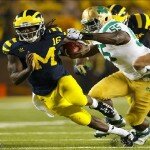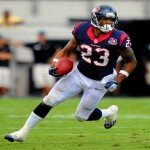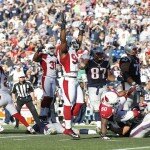The Oakland Raiders loss to the Miami Dolphins was ugly to say the least. They could not run the ball or stop the run, two essentials you need to succeed in the NFL. Sometimes the stats don’t tell the whole story, but if you know which numbers to look at, you can tell the story of any game. Here are eight numbers that explain why Oakland lost Sunday.
0- Oakland did not force a single turnover from rookie quarterback Ryan Tannehill. A week after intercepting three passes and tipping numerous others at the line, the Raiders could not do either of those two things and allowed Tannehill to complete 18 of 30 passes. The Raiders only turned it over once, but regardless Oakland needs to create better opportunities for its offense.
1- The Raiders only converted a single third down in 12 opportunities. That is just pathetic for an NFL team. The lone conversion came on a 12-play, 81-yard drive that ended with a field goal. The inability to convert on those opportunities stalled a couple of promising drives and also did not allow Oakland to win the field-position battle in the punting game.
2- The number of drives Oakland started beyond its own 20-yard line. For comparison, Miami had only one drive start from inside its 20-yard line. The Dolphins won the field position battle big-time, and trapped inside their own territory, the Raiders offense was inept for the most part and barely moved the ball past midfield. Only about half of Oakland’s drives crossed the midfield stripe, including the one that started in Miami territory.
9- Shane Lechler got a lot of work with nine punts of 13 Oakland drives. Only two of those drives were three-and-outs, but the Raiders inability to move the ball gave Lechler more work than he would have liked. It did not help that Lechler was punting from deep in his own territory most of the time and therefore could not use his leg to flip the field as much as Oakland would have liked. Lechler averaged 47 yards on his punts, which is two yards below his average from last season, but it is also hard to punt well nine times in a game.
14- The Raiders ran 62 plays against the Dolphins, but only 14 were on the ground. That equates to roughly one out of every five plays being a running play. It was easy for the Miami defense to key in on the pass when the running game was rarely used. When Oakland did run the ball, the offensive line was unable to create holes for the running back and the Raiders ended up with 23 rushing yards.
22- Darren McFadden only got 11 carries which is nowhere near enough for him, but he only managed 22 yards on those carries. Some of the blame can be placed on the offensive line not being able to open up holes for him, but when your longest run on the day is four yards there are other issues. McFadden has not looked the same since coming back from the foot injury he suffered last year, and it may still be bothering him. He is not as explosive as he was before and he is getting replaced by Mike Goodson more and more during the game, even when it is not third down.
95- We knew Reggie Bush was a good running back, but not good enough to run for 95 yards and two 20-plus-yard touchdowns in one quarter. His third-quarter performance was capped by a 65-yard scamper to put the Dolphins up two scores late in the quarter, a lead Oakland would never touch. It was a large part of his 172-yard game Sunday and solidified how bad the Raiders’ defense was against the rush.
263- Any time a team runs for more than 200 yards in a game, they’re probably going to win and Miami was no exception. The Dolphins’ 263 yards on the ground came on just 43 carries, good for a six-yard average per carry. Miami controlled the ball for more than 34 minutes and scored four times on the ground against the porous Oakland defense. The performance was only half of Miami’s complete domination of the trenches.
Oakland’s bonus number is 0, as in a record of 0-2. Oakland needs to correct most of these stats if it wants a chance to win some football games.
























